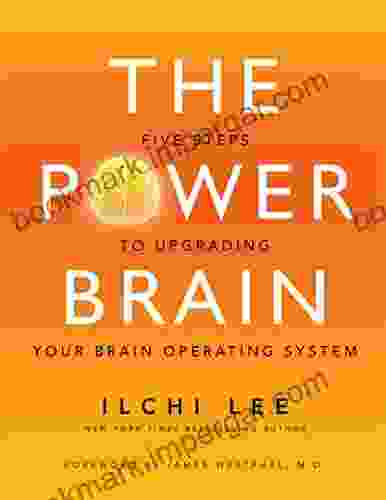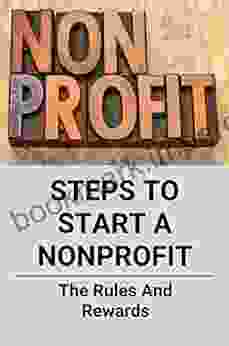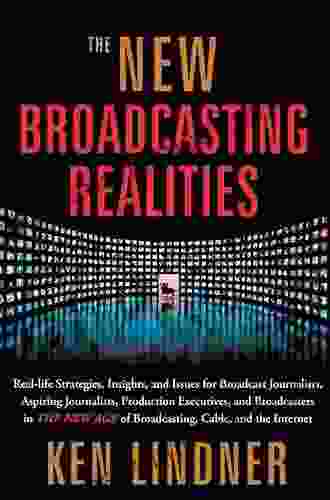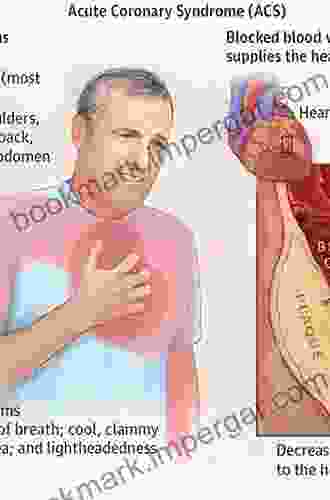Unlock the Secrets of Acute Coronary Syndrome: An In-Depth Guide

Cardiovascular diseases remain a leading cause of mortality worldwide, and acute coronary syndrome (ACS) is one of its most prevalent manifestations. ACS encompasses a spectrum of conditions, including unstable angina and myocardial infarction, resulting from a sudden decrease or blockage of blood flow to the heart.
This comprehensive article delves into the intricacies of ACS, providing an in-depth understanding of its causes, symptoms, diagnosis, treatment options, and preventive measures. By arming yourself with this knowledge, you empower yourself to proactively manage your cardiovascular health and optimize your well-being.
5 out of 5
| Language | : | English |
| File size | : | 528 KB |
| Text-to-Speech | : | Enabled |
| Enhanced typesetting | : | Enabled |
| Lending | : | Enabled |
Understanding the Causes of ACS
The primary cause of ACS is the formation of a blood clot within a narrowed coronary artery. These arteries supply oxygenated blood to the heart muscle. When a clot obstructs blood flow, it can deprive the heart of essential nutrients and oxygen, leading to damage or even infarction (death) of heart tissue.
Several factors contribute to the development of ACS, including:
- Atherosclerosis: A condition characterized by the buildup of plaque (fat, cholesterol, and other substances) within the walls of the arteries, which narrows the arteries and increases the risk of blood clots forming.
- High blood pressure: Hypertension puts excessive pressure on the arteries, damaging their walls and making them more susceptible to plaque buildup.
- High cholesterol: Elevated levels of cholesterol in the blood contribute to the formation of plaque within the arteries.
- Smoking: Nicotine and other chemicals in cigarettes damage the arteries and increase the risk of blood clots.
- Diabetes: Diabetes mellitus disrupts the body's ability to regulate blood sugar levels, leading to damage to the heart and blood vessels.
- Obesity: Excess weight increases the risk of developing hypertension, high cholesterol, and diabetes, all of which are associated with ACS.
- Physical inactivity: Lack of regular exercise weakens the heart and blood vessels, making them more susceptible to damage.
- Family history of heart disease: Individuals with a family history of cardiovascular disease are at an increased risk of developing ACS.
Recognizing the Symptoms of ACS
Timely recognition of ACS symptoms is crucial for prompt medical attention and optimal outcomes. The most common symptom of ACS is chest pain or discomfort, which may feel like:
- Pressure or squeezing sensation in the center of the chest
- Pain that radiates to the left arm, neck, jaw, or back
- Chest discomfort that lasts for more than a few minutes or comes and goes
Other symptoms of ACS may include:
- Shortness of breath
- Lightheadedness or dizziness
- Nausea or vomiting
- Cold sweats
- Unexplained anxiety or weakness
It's important to note that these symptoms can vary in severity and presentation. Therefore, seeking medical attention promptly is essential if you experience any of these symptoms, especially if you have any underlying risk factors for heart disease.
Diagnosis of ACS
Accurate diagnosis of ACS is critical to guide appropriate treatment. Your doctor will typically perform a thorough physical examination and review your medical history. They may Free Download various tests to confirm the diagnosis, including:
- Electrocardiogram (ECG): An ECG records the electrical activity of the heart to detect any abnormalities that suggest ACS.
- Blood tests: Blood tests can measure levels of cardiac enzymes (proteins released by damaged heart muscle) and other markers of ACS.
- Imaging tests: Imaging tests such as coronary angiography, computed tomography (CT) angiography, or magnetic resonance imaging (MRI) can visualize the coronary arteries and help identify any blockages or narrowing.
Treatment Options for ACS
Treatment for ACS aims to restore blood flow to the heart and prevent further damage to the heart muscle. Treatment options may include:
- Medications: Medications such as aspirin, clopidogrel, or ticagrelor help prevent blood clots from forming or growing.
- Angioplasty and stenting: A thin tube with a balloon at its tip is inserted into the blocked artery, and the balloon is inflated to widen the artery. A stent (a small mesh tube) may be placed to keep the artery open.
- Coronary artery bypass grafting (CABG): This surgical procedure involves creating a new pathway for blood to flow around the blocked artery using another blood vessel from the body.
The specific treatment approach recommended for you will depend on various factors, including the severity of your ACS, the location and extent of the blockage, and your overall health.
Preventing ACS
While ACS can be a life-threatening condition, proactive measures can significantly reduce your risk of developing it. These preventive measures include:
- Managing your blood pressure: Maintaining a healthy blood pressure through lifestyle modifications or medications is crucial.
- Controlling your cholesterol levels: A healthy diet and regular exercise can help lower cholesterol levels.
- Quitting smoking: Smoking cessation is one of the most effective ways to reduce your risk of ACS.
5 out of 5
| Language | : | English |
| File size | : | 528 KB |
| Text-to-Speech | : | Enabled |
| Enhanced typesetting | : | Enabled |
| Lending | : | Enabled |
Do you want to contribute by writing guest posts on this blog?
Please contact us and send us a resume of previous articles that you have written.
 Book
Book Novel
Novel Page
Page Chapter
Chapter Text
Text Story
Story Genre
Genre Reader
Reader Library
Library Paperback
Paperback E-book
E-book Magazine
Magazine Newspaper
Newspaper Paragraph
Paragraph Sentence
Sentence Bookmark
Bookmark Shelf
Shelf Glossary
Glossary Bibliography
Bibliography Foreword
Foreword Preface
Preface Synopsis
Synopsis Annotation
Annotation Footnote
Footnote Manuscript
Manuscript Scroll
Scroll Codex
Codex Tome
Tome Bestseller
Bestseller Classics
Classics Library card
Library card Narrative
Narrative Biography
Biography Autobiography
Autobiography Memoir
Memoir Reference
Reference Encyclopedia
Encyclopedia J R Oldfield
J R Oldfield Joseph Shade
Joseph Shade Howard Silverstone
Howard Silverstone Thomas Moore
Thomas Moore Jack Goldstein
Jack Goldstein Ilya Somin
Ilya Somin Zelda Lockhart
Zelda Lockhart Sharron Grodzinsky
Sharron Grodzinsky Moones Rahmandoust
Moones Rahmandoust M Stefan Strozier
M Stefan Strozier Hrudayanath Thatoi
Hrudayanath Thatoi Jed Jurchenko
Jed Jurchenko Robert Samuels
Robert Samuels Jack Olsen
Jack Olsen J Keith Saliba
J Keith Saliba Ivan Vladislavic
Ivan Vladislavic Howard Fradkin
Howard Fradkin Isabelle Vladoiu
Isabelle Vladoiu Sean M Carroll
Sean M Carroll Howard F Weiner
Howard F Weiner
Light bulbAdvertise smarter! Our strategic ad space ensures maximum exposure. Reserve your spot today!

 J.R.R. TolkienMust Read Before Saying Do: An Indispensable Guide to Making Wise Decisions
J.R.R. TolkienMust Read Before Saying Do: An Indispensable Guide to Making Wise Decisions
 Herman MelvilleUnlock Your Brain's Potential: Five Steps to Upgrade Your Operating System
Herman MelvilleUnlock Your Brain's Potential: Five Steps to Upgrade Your Operating System Edwin BlairFollow ·8.5k
Edwin BlairFollow ·8.5k Keith CoxFollow ·17.3k
Keith CoxFollow ·17.3k Miguel de CervantesFollow ·19k
Miguel de CervantesFollow ·19k Cole PowellFollow ·4.2k
Cole PowellFollow ·4.2k Theodore MitchellFollow ·18.2k
Theodore MitchellFollow ·18.2k Arthur C. ClarkeFollow ·14.2k
Arthur C. ClarkeFollow ·14.2k Alex ReedFollow ·13k
Alex ReedFollow ·13k Ernest HemingwayFollow ·6.2k
Ernest HemingwayFollow ·6.2k

 Mike Hayes
Mike HayesUnlock Your Nonprofit Potential: A Comprehensive Guide to...
: Embarking on the Path to Impactful...

 Cody Russell
Cody RussellUnlock the Secrets of Captivating Radio Programming:...
In the fiercely competitive world of...

 Aron Cox
Aron CoxUnveiling the Enchanting World of Beth Inspired Eye...
A Realm of Imagination and Wonder Embark on...

 Felix Carter
Felix CarterUnlock the Secrets of Legal Publishing with West Hartford...
West Hartford Legal Publishing, the renowned...

 Henry Hayes
Henry HayesUnveiling the Secrets of the Panama Papers: Exposing...
The Panama Papers is a groundbreaking...
5 out of 5
| Language | : | English |
| File size | : | 528 KB |
| Text-to-Speech | : | Enabled |
| Enhanced typesetting | : | Enabled |
| Lending | : | Enabled |










